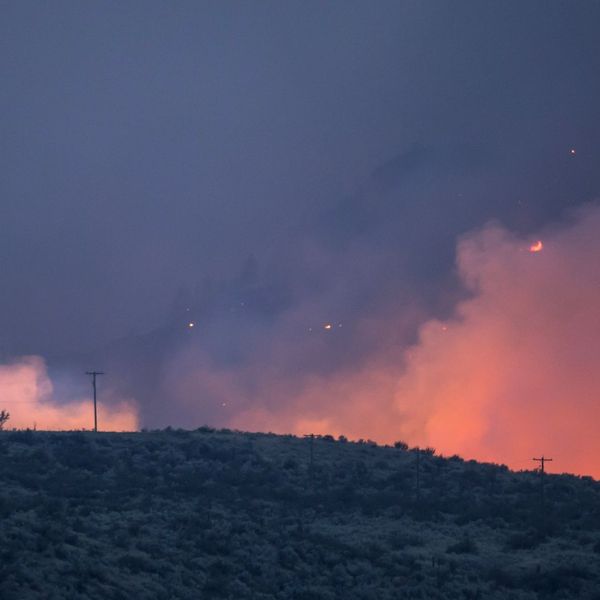Supreme Court Orders BP to Pay Up
Oil giant's challenge to settlement is just latest effort to avoid paying claims to victims of the 2010 Deepwater Horizon spill
Despite BP's public relations blitz and high-priced team of lawyers, the U.S. Supreme Court on Monday rejected the oil giant's challenge to a settlement of billions of dollars for the 2010 Deepwater Horizon explosion oil spill.
The challenge was just the latest attempt by the company to avoid paying those impacted by the disaster.
Agreed to in 2012, the settlement stipulates that some businesses claiming economic damages must show a pattern of loss relating to the spill, but are not required to prove causation in order to receive claims. However, after the agreement was implemented, BP backed away from this agreement and launched a vigorous effort to deny the subsequent claims.
The company launched an aggressive public relations campaign in an effort to build public support for its case, including placing full-page ads in the The Washington Post and The New York Times. Many media outlets offered favorable coverage to BP free of charge, including Bloomberg Business Week and 60 Minutes.
Nonetheless, the Supreme Court issued a one-sentence, unanimous ruling in which it declined to revisit rulings by lower courts. The decision means the company has no choice but to pay eligible claims.
"Today's ruling is a huge victory for the Gulf, and should finally put to rest BP's two-year attack on its own settlement," the lead attorneys for the class of affected businesses, Stephen J. Herman and James P. Roy, said in a statement, which slammed the company for attempting to "rewrite history."
The 2010 disaster killed 11 workers and led to the country's worst off-shore oil spill, which continues to pose and environmental and public health threat to Gulf Coast communities.
An Urgent Message From Our Co-Founder
Dear Common Dreams reader, The U.S. is on a fast track to authoritarianism like nothing I've ever seen. Meanwhile, corporate news outlets are utterly capitulating to Trump, twisting their coverage to avoid drawing his ire while lining up to stuff cash in his pockets. That's why I believe that Common Dreams is doing the best and most consequential reporting that we've ever done. Our small but mighty team is a progressive reporting powerhouse, covering the news every day that the corporate media never will. Our mission has always been simple: To inform. To inspire. And to ignite change for the common good. Now here's the key piece that I want all our readers to understand: None of this would be possible without your financial support. That's not just some fundraising cliche. It's the absolute and literal truth. We don't accept corporate advertising and never will. We don't have a paywall because we don't think people should be blocked from critical news based on their ability to pay. Everything we do is funded by the donations of readers like you. Will you donate now to help power the nonprofit, independent reporting of Common Dreams? Thank you for being a vital member of our community. Together, we can keep independent journalism alive when it’s needed most. - Craig Brown, Co-founder |
Despite BP's public relations blitz and high-priced team of lawyers, the U.S. Supreme Court on Monday rejected the oil giant's challenge to a settlement of billions of dollars for the 2010 Deepwater Horizon explosion oil spill.
The challenge was just the latest attempt by the company to avoid paying those impacted by the disaster.
Agreed to in 2012, the settlement stipulates that some businesses claiming economic damages must show a pattern of loss relating to the spill, but are not required to prove causation in order to receive claims. However, after the agreement was implemented, BP backed away from this agreement and launched a vigorous effort to deny the subsequent claims.
The company launched an aggressive public relations campaign in an effort to build public support for its case, including placing full-page ads in the The Washington Post and The New York Times. Many media outlets offered favorable coverage to BP free of charge, including Bloomberg Business Week and 60 Minutes.
Nonetheless, the Supreme Court issued a one-sentence, unanimous ruling in which it declined to revisit rulings by lower courts. The decision means the company has no choice but to pay eligible claims.
"Today's ruling is a huge victory for the Gulf, and should finally put to rest BP's two-year attack on its own settlement," the lead attorneys for the class of affected businesses, Stephen J. Herman and James P. Roy, said in a statement, which slammed the company for attempting to "rewrite history."
The 2010 disaster killed 11 workers and led to the country's worst off-shore oil spill, which continues to pose and environmental and public health threat to Gulf Coast communities.
Despite BP's public relations blitz and high-priced team of lawyers, the U.S. Supreme Court on Monday rejected the oil giant's challenge to a settlement of billions of dollars for the 2010 Deepwater Horizon explosion oil spill.
The challenge was just the latest attempt by the company to avoid paying those impacted by the disaster.
Agreed to in 2012, the settlement stipulates that some businesses claiming economic damages must show a pattern of loss relating to the spill, but are not required to prove causation in order to receive claims. However, after the agreement was implemented, BP backed away from this agreement and launched a vigorous effort to deny the subsequent claims.
The company launched an aggressive public relations campaign in an effort to build public support for its case, including placing full-page ads in the The Washington Post and The New York Times. Many media outlets offered favorable coverage to BP free of charge, including Bloomberg Business Week and 60 Minutes.
Nonetheless, the Supreme Court issued a one-sentence, unanimous ruling in which it declined to revisit rulings by lower courts. The decision means the company has no choice but to pay eligible claims.
"Today's ruling is a huge victory for the Gulf, and should finally put to rest BP's two-year attack on its own settlement," the lead attorneys for the class of affected businesses, Stephen J. Herman and James P. Roy, said in a statement, which slammed the company for attempting to "rewrite history."
The 2010 disaster killed 11 workers and led to the country's worst off-shore oil spill, which continues to pose and environmental and public health threat to Gulf Coast communities.

